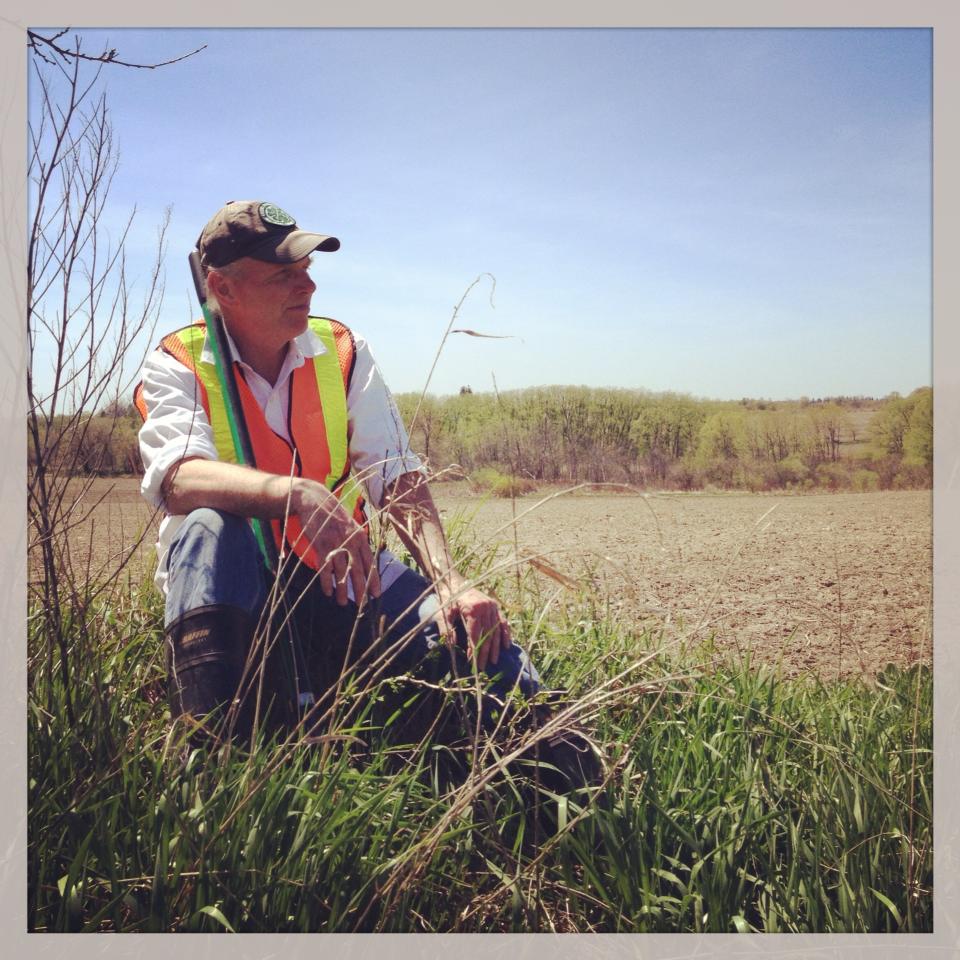Meet Dr. Bruce Welsh: a nature-loving Scotsman with a penchant for haggis, hiking and Orwellian theories. A real “post whisperer,” this senior archaeologist has seen it all…and is not afraid to tell you about it.
Where did you go to school?

Initially began my undergraduate degree in Classics and languages and literature (Latin, French and English). One of my first year options was anthropology and archaeology quickly attracted my attention. A summer (1975) working at the Draper site was the final persuasion and I have not looked at anything else since. Upon completing my undergraduate degree at Toronto, I completed my M.A. and Ph.D. at what was then the Institute of Archaeology, University of London (now UCL Institute of Archaeology). I spent 11 years in the U.K. which included 4 years working in Egypt. Upon returning to Canada in 1988, I checked out the consulting scene, saw Ron’s name, a fellow Draper colleague. We had a meeting and he concluded I’d be a useful addition to the company. I have been at ASI ever since.
If you weren’t an archaeologist, what would you be?
I cannot imagine being anything other than an archaeologist, but if I were not I might be an environmentalist or naturalist. Rachel Carson’s Silent Spring had a huge impact on me when I was young and I spend much of my time in and out of archaeology noting what is happening to our environment. Furthermore, just ask any students who have worked with me how many bird calls I recognize and teach them to recognize!
Who is your favourite historical figure and why?
There are many historical figures that I admire but I shall just mention a few that greatly influenced me in one way or another, or affected me in the manner I live and work. First and foremost would have to be Aesop and his fables. The wisdom displayed in these fables is a good basis for proper conduct and behavior in life. Second would have to be George Orwell for his brilliant critical commentaries on imperialism, colonialism, racism and the hypocrisy and stupidity within governments, tyrannical or democratic. And on this basis, I admire anyone who stands up to imperialism, colonialism and governmental harassment of any kind, such as Martin Luther King, Frantz Fanon, or Aung Sang Suu Kyi. I also have one archaeological hero, Flinders Petrie, for inventing just about every process we use in archaeology.
What is your favourite site memory?
I have so many interesting site memories that it is difficult to identify just one. I shall mention two, both while working with Steve Moncton. One was finding the Onondaga chert quarry in Fort Erie that actually had steps down into the bedrock. The second would be finding the remnants of a carbonized reed mat at the bottom of a sweat lodge at the Alexandra site. Removing the mat intact required some pretty innovative thinking!
My least favourite thing about archaeology is…
There is nothing I dislike about archaeological field work, but successive days with excessive heat and humidity diminishes my energy to do much of anything. I like the cold!
To pass the time on site, I…
…keep digging.
My mottos are…
1) No two sites are ever the same; 2) You only get one chance to do archaeology so do it right and don’t screw up. Pay the closest attention to what you see and feel.
If I could go back in time and excavate any site in the world, I would choose…
Once upon a time, I wanted to excavate at the Meidum pyramid in Egypt to find the workmen’s village and prove that the pyramid collapsed. Never happened, but I recommend any students should consider it. It is there to be excavated.
When I’m not working, I like to…
…hike, preferably long distances. No. 1 on my bucket list is to complete the hike I started but never finished in northern Scotland in 1976. Upon my retirement, I also intend to conduct volunteer work for environmental organizations like Bird Studies Canada and Ontario Nature, in between my numerous local Ontario hikes of course.
Final thoughts?
I should like to say that I have been incredibly lucky in my life and in archaeology. I have met some incredible people who helped me achieve my goals. Fortunately, I continue to meet incredible people in all the students I have had the opportunity to teach and train. They have inspired me to do my best for them and archaeology, and I hope I have inspired them to do their best.










